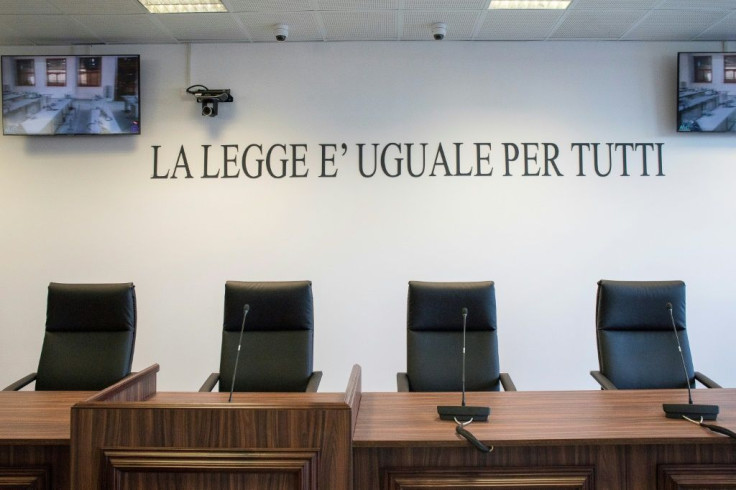Five Things To Know About Italy's 'Ndrangheta Mafia
The 'Ndrangheta, rooted in the southern region of Calabria, has surpassed Sicily's more famous Cosa Nostra to become Italy's most powerful mafia group, which operates across the world.
Here are five things to know about the organised crime group, as more than 350 alleged members and their associates go on trial this week.
Criminologist Anna Sergi, of the University of Essex in England, says the group's name has Greek origins -- the word "andranghateia" refers to a "society of men of honour", and "andrangatho" means "to do military actions".
The group has only been classed as mafia under Italian law since 2010, but it dates back at least to the unification of Italy in 1861.
It came to public prominence in the 1980s and 1990s in a series of kidnappings across Italy, and affiliates are believed to have been responsible for kidnapping oil tycoon John Paul Getty's grandson.
Judge Roberto Di Bella, who has almost 30 years of experience in the methods of the Calabrian mob, describes the 'Ndrangheta as "perhaps the most powerful criminal organisation in the world, but certainly the most diffuse, and present on five continents".
Its activities include those typical of organised crime groups -- drug trafficking, extortion, illegal waste trafficking and money laundering.
But what makes the 'Ndrangheta different from other mafia groups is its family structure -- it is based on blood ties, which makes it "very reliable, because there are few turncoats", Di Bella told AFP.
This is one of the reasons why Colombian or Mexican drugs producers have used the 'Ndrangheta to sell in Europe.
"The enormous flow of money that comes from drugs allows the 'Ndrangheta to buy everything -- businesses, restaurants -- to pollute the economy not just of Italy but of many other countries in the world," he said.

The Italian authorities estimate there are around 20,000 'Ndrangheta members around the world, but its true make-up and wealth are difficult to establish.
Nicola Gratteri, a leading prosecutor in Calabria, estimates the group generates an annual turnover of more than 50 billion euros ($61 billion) -- much of it from cocaine trafficking.
While usually operating under the radar, the activities of the 'Ndrangheta were thrown into the spotlight in a massacre outside a pizzeria in the German town of Duisburg in 2007.
Six rival clan members were killed as part of a long-running feud between families from the town of Calabria's San Luca. Sixteen people have been killed in fighting between the families in the 'Ndrangheta bastion since the 1990s.
The 'Ndrangheta is "feared for its ferocity and its cruelty", according to Gratteri, who has lived under police protection for the past three decades.
The stories of the violence perpetuated by members are legion, but one particularly grisly one emerged days ahead of this week's trial.
Maria Chindamo, a 42-year-old businesswoman from Calabria, was reportedly murdered and her body fed to pigs in 2016 after refusing to give up her land to a neighbour with ties to the group.
The 'Ndrangheta, as well as other mafia groups, has also been blamed for the deaths of dozens of children since the 1950s.
They include three-year-old Nicola "Coco" Campolongo, who was shot in the head in 2014 by gunmen targeting his grandfather.
That same year, on a visit to Calabria, Pope Francis called on Catholics to fight against the 'Ndrangheta, declaring the group "excommunicated".





















